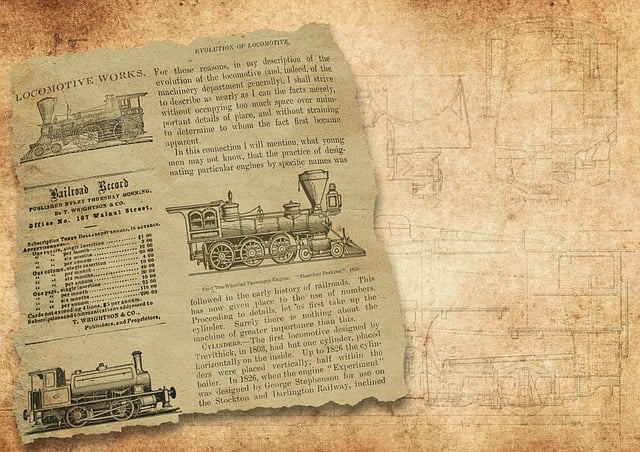Translation services for UK Technical Reports and White Papers demand exceptional precision due to their complex language, specialized terminology, and cultural nuances. Professional translators with subject matter expertise navigate these intricacies, ensuring accurate communication while preserving document integrity. Robust Quality Assurance processes involving in-house experts and external reviews guarantee linguistic precision and conceptual faithfulness. Adhering to ISO 17100 standards and utilizing advanced translation tools ensures high-quality outputs tailored for global audiences, with meticulous evaluation by subject matter experts for ultimate accuracy.
Ensuring accuracy in translating UK white papers and technical reports is paramount, especially considering their complex subject matter and regulatory environment. This article delves into the critical factors that determine the precision of such translations, exploring challenges unique to this document type. We discuss the importance of expertise in relevant fields, rigorous quality assurance processes, and adherence to industry standards. By understanding these aspects, you can choose optimal translation services for UK technical reports and white papers, ensuring reliable information dissemination.
- Understanding the Importance of Accuracy in Technical Translation
- The Challenges of Translating UK White Papers and Reports
- Expertise and Language Proficiency in Technical Fields
- Quality Assurance Processes for Precision Translation
- Industry Standards and Best Practices for White Paper Translations
- Measuring Success: Evaluating the Accuracy of UK Technical Document Translations
Understanding the Importance of Accuracy in Technical Translation

Technical translation, especially for reports and white papers, demands an unparalleled level of accuracy. These documents often contain complex terminology, intricate scientific data, and highly specialized content. When it comes to UK technical reports and white papers, precision is not just desirable—it’s crucial. A single misinterpreted term could lead to misunderstandings, loss of credibility, or even safety hazards in regulated industries.
Translation services for these documents must go beyond simple word-for-word translation. They need to employ linguistically skilled professionals who understand the subject matter and can convey technical concepts accurately. Thorough knowledge of industry-specific terminology, along with cultural nuances and legal considerations unique to the UK market, is essential. This ensures that the translated white paper not only communicates the intended message but also adheres to local standards and regulations.
The Challenges of Translating UK White Papers and Reports

Translating UK white papers and reports presents a unique set of challenges, especially when dealing with technical content. These documents often contain complex terminology, industry-specific jargon, and highly precise data, all of which require meticulous handling to ensure accuracy. The goal is to convey the original meaning and intent without losing integrity or introducing ambiguity in the translated text.
One significant hurdle is maintaining consistency across various terms and definitions, particularly when dealing with specialized fields. Different industries and even organizations within the same sector may use slightly varying terminologies, making it crucial for translators to have a deep understanding of the subject matter. Additionally, white papers are typically designed to be concise and impactful, which means every word counts. Translators must capture this essence while adapting the content to suit linguistic nuances and cultural contexts of the target audience.
Expertise and Language Proficiency in Technical Fields

When it comes to translating UK technical reports and white papers, expertise and language proficiency are paramount. Professional translation services understand that these documents demand precise and specialized knowledge in their respective fields. Translators who possess a deep understanding of complex concepts ensure accurate communication of technical details across languages.
This involves not just a strong command of the source and target languages but also familiarity with industry-specific terminology. Skilled translators are adept at navigating intricate technical landscapes, ensuring that white papers maintain their integrity and intended meaning during translation. They employ terminological consistency and reference reliable sources to deliver high-quality translations tailored for global audiences.
Quality Assurance Processes for Precision Translation

When it comes to translating UK technical reports and white papers, precision is paramount. These documents often contain complex language, specialized terminology, and intricate details that require meticulous handling. Reputable translation services for such content employ robust Quality Assurance (QA) processes to ensure accuracy and consistency across every document.
QA involves multiple stages of review and editing. Initially, translated texts are checked by in-house experts who verify terminology, sentence structure, and overall fluency. This is followed by external reviews where subject matter specialists scrutinize the translation against the original content for technical accuracy. Only after these rigorous checks does the final version emerge, guaranteeing that UK white papers and reports are not just linguistically precise but also conceptually faithful to their source material.
Industry Standards and Best Practices for White Paper Translations

When it comes to translating UK white papers, adherence to industry standards and best practices is paramount. These documents, often highly technical in nature, demand precision and accuracy to convey complex information effectively. Translation services for UK Technical Reports and White Papers should incorporate several key practices. First and foremost, they must employ professional translators with specialized expertise in the relevant field. This ensures that terminological consistency and scientific rigour are maintained across languages.
Additionally, state-of-the-art translation memory software is essential. This technology stores previously translated terms and phrases, facilitating faster translations while preserving terminology accuracy. Advanced tools also enable collaborative work among translators, revisers, and subject matter experts, leading to higher quality outputs. Conformity with industry standards like ISO 17100 guarantees a rigorous process, ensuring that translations meet or exceed expectations for technical clarity and precision.
Measuring Success: Evaluating the Accuracy of UK Technical Document Translations

Measuring success in translation services, especially for intricate documents like UK technical reports and white papers, involves a meticulous evaluation process. Accuracy is paramount, as these documents often carry critical information within specialized fields. Translators must not only grasp the meaning but also convey it precisely in the target language, ensuring consistency with the original content.
To assess the quality, several metrics can be employed. First, a thorough comparison between the translated document and the source material is essential. This involves checking for grammatical correctness, fluency of the text, and adherence to industry-specific terminology. Moreover, feedback from subject matter experts who understand the nuances of the domain is invaluable. Their input helps identify any conceptual or contextual errors that may have been overlooked during the translation process, ultimately ensuring the accuracy of UK white paper translations.
When it comes to translation services for UK technical reports and white papers, precision is paramount. The complex nature of these documents demands a deep understanding of both the source material and the target language. By combining expertise in technical fields, stringent quality assurance processes, and adherence to industry standards, professional translators ensure accuracy and clarity. This meticulous approach not only preserves the integrity of the original content but also makes critical information accessible to a global audience, facilitating knowledge exchange and innovation across borders.
